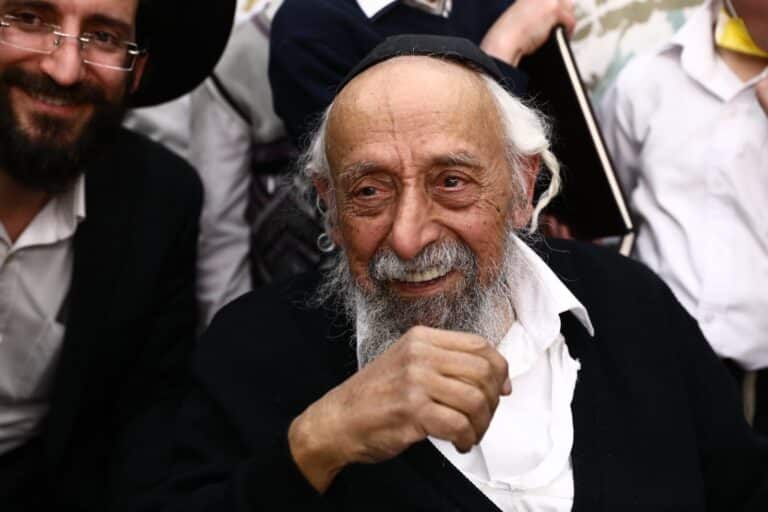Translation by Yehoshua Siskin
Yesterday afternoon, tens of thousands accompanied Rabbi Shimon Baadani -- prominent teacher, educator, and leader -- to his final resting place after he passed away at the age of 94. I heard the most moving words regarding his life from a surprising source yesterday evening at an event that I attended. A young waiter by the name of Yosef approached me and began to tell me about his acquaintanceship with Rabbi Baadani.
"I just returned from the funeral. I barely managed to get ready for work and it's a little strange for me now to be serving food. It is important for people to know that the rabbi was modest and humble. At an advanced age, he continued to seek out others' advice, despite having tens of thousands of students in Israel and throughout the world. He still sought out the opinion of those who were wiser than him. That is a truly special quality."
When Yosef came back to the table with the main course, I asked to hear more. "We are living at a time when public relations are sometimes more important than what we do. Rabbi Baadani did not have "spokesmen" or "close associates." He refused to go that route. He had a personal phone which he sometimes kept beside him when he learned Torah since someone who needed him might call. I know for a fact that whoever wanted to talk to him could always reach him directly since he had no secretaries or assistants. He would interrupt his learning in order to comfort a widow who was going through a difficult time, and then immediately return to his books.
"A video from the days of the coronavirus lockdowns was published today.," he continued. "It showed Rabbi Baadani standing at the entrance to his synagogue and crying. We were all saddened that everything was closed, but for him -- who was intimately attached to learning Torah and to praying with the public -- it was especially hard. So he simply stood at the entrance to the synagogue, prayed, and wept.
"And one more thing that was said at his funeral: He always went where he was needed. If there was a large event with lots of people in attendance, he understood that it would probably not be important for him to be there. But if he heard about a sparsely attended simcha (festive occasion) or, heaven forbid, a funeral, he would rush there at once. This is opposite from the inclination of most of us, but he looked for opportunities where he could make a difference, whether in gladdening the hearts of celebrants or in demonstrating respect for mourners and the deceased. He always checked to see where his presence would be most beneficial at any given moment."
Thank you, Yosef, for the spontaneous eulogy. In his memory.








